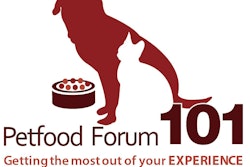Pet owners are increasingly treating their “fur-babies” like members of the family. In response, some pet food companies are developing diets that more closely resemble human food, incorporating human-grade meat and vegetable ingredients that pass USDA quality inspections. Until now, little research had been done on these foods. A new study from the University of Illinois shows these diets are not only highly palatable, they are more digestible than originally estimated.
Kelly Swanson, the Kraft Heinz Company Endowed Professor in Human Nutrition in the Department of Animal Sciences and the Division of Nutritional Sciences at Illinois, is a co-author on the Translational Animal Science study. “Of course, you assume that since human-grade ingredients are high quality, the foods should be highly digestible,” he says. “But until unbiased researchers actually conduct the testing, these companies are getting questioned by consumers and veterinarians. Are the foods safe? Are they complete and balanced? Basically, are they good?”
The researchers tested six commercial dog foods from JustFoodForDogs, a company that claims to exclusively use USDA-certified ingredients in its diets. Their products, similar to a handful of other niche companies and subsidiaries, are formulated using minimally processed human-edible ingredients, such as rice, carrots, broccoli, chicken, lamb, and others, in a kind of casserole. Each diet is also supplemented with human-quality vitamins and minerals to ensure they qualify as complete and balanced for pets.
The researchers determined the chemical composition of the six diets, as well as their nutrient and amino acid digestibility and energy content. In order to avoid the confounding effects of gut microbial activity, they fed each diet to surgically altered roosters lacking ceca, or microbial pouches. Ultimately, all the diets were highly digestible.
One of the goals was to help determine feeding guidelines for specialized diets like these. Since the diets are more similar to human foods than traditional kibble, Swanson says there are risks in using formulas derived from traditional pet foods.
“Typical pet foods are generally less digestible than human foods – that’s why feeding guidelines are different from the USDA nutrition guidelines for humans. But if you apply the traditional dog food guidelines for metabolizable energy to human-grade dog foods, you risk overfeeding because these foods are so nutrient-dense,” Swanson says.
Amino acid digestibility was also very high – over 85% for most of the indispensable amino acids – indicating high protein quality. This can translate to low stool volume, welcome news for most dog owners.
Although the study included a single product line, Swanson believes the outcomes are likely to translate to similar pet diets using human-grade ingredients. “Individual foods have to be tested, but our results should apply to other products if they’re truly using human-grade ingredients. There might be some small differences, but ultimately, they should still be highly digestible,” he says.
Swanson notes that any dog food labeled “complete and balanced” should meet the dietary requirements for the animal. Of course, care must still go into researching each pet food company and ensuring they meet your veterinarian’s approval. Foods that use premium ingredients may improve coat quality or stool volume above and beyond the basic requirements. And, Swanson says, they satisfy the growing demographic of pet owners who are looking to achieve long-term wellness for their animals.
Swanson is currently testing the diets, along with similar diets from other companies, in dogs.
The article, “True nutrient and amino acid digestibility of dog foods made with human-grade ingredients using the precision-fed cecectomized rooster assay,” is published in Translational Animal Science [DOI: 10.1093/tas/txz175]. Authors include Patricia Oba, Pamela Utterback, Carl Parsons, and Kelly Swanson. Funding was provided by JustFoodForDogs LLC.














